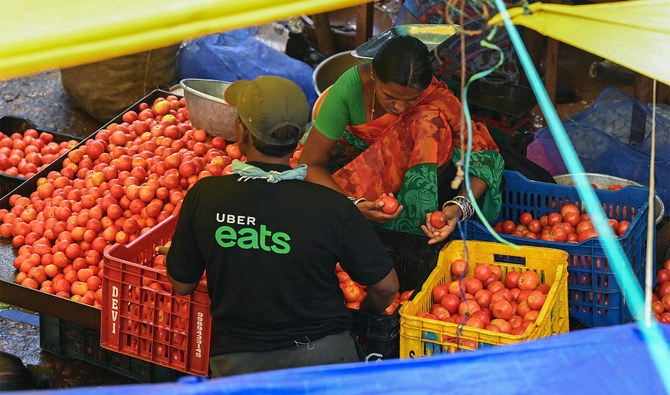BENGALURU: India’s economic expansion likely moderated but remained strong in the September quarter, supported by robust service activity and solid urban demand despite a global slowdown dampening export growth, according to a Reuters poll of economists.
Gross domestic product (GDP) growth is forecast to have slowed to 6.8 percent in the July-September quarter from 7.8 percent in the previous quarter, according to the median forecast of 55 economists polled from Nov. 17-27.
But forecasters see that as a minor slowdown from an exceptionally strong quarter for Asia’s third-largest economy, which is expected by the same group of economists to grow more than 6.0 percent over coming years, currently the fastest among major economies.
Even as an erratic monsoon led to a spike in inflation last quarter, consumer demand — which contributes about 60 percent of GDP growth — remained strong in a country of over 1.4 billion people, largely driven by urban dwellers.
Forecasts for the data, due on Thursday, ranged from 5.6 percent to 7.4 percent.
“Headline growth likely remained resilient...with utilities, services and construction showing robust growth. Domestic demand remains the key economic driver of activity, as external demand continues to remain weak,” Rahul Bajoria at Barclays said in a note.
India GDP growth is forecast to average 6.4 percent this fiscal year ending March 31 and 6.3 percent in the following year, driven partly by higher government capital expenditure, according to the wider Reuters poll.
That expected growth would easily outpace most other economies, many of which have slowed dramatically following a historic series of central bank interest rate rises to tame inflation. The Reserve Bank of India’s efforts have been mild by comparison.
Capital expenditure was 4.91 trillion Indian rupees ($58.98 billion) in the first six months of the fiscal year, higher than 3.43 trillion rupees in the same period a year earlier. Economists predict capital spending will climb even higher in the run-up to a national election slated for May 2024.
Asked what would be the primary driver of economic growth for the remainder of this fiscal year, economists were nearly split between government spending (14) and consumption (13). Five said investment.
But consumer demand is not uniform across the world’s most populous country, which contains some of the biggest cities globally. Two-thirds of Indians live outside of cities.
While rural demand took a hit in the July-September quarter due to higher prices for everyday items, urban demand held strong. However, weakness in rural demand is expected to be short-lived.
A strong 69 percent majority of economists who answered a separate question, 20 of 29, said the gap between rural and urban consumption would narrow over the coming two to three years. Six said it would remain the same, and three said it would widen further.
“We expect private consumption growth to recover further as it narrows the gap between rural and urban demand and between goods and services,” Upasana Chachra, chief India economist at Morgan Stanley, said in a note.
Chachra said an improvement in purchasing power as core inflation moderates would help rural consumption.
($1 = 83.2440 Indian rupees)
























